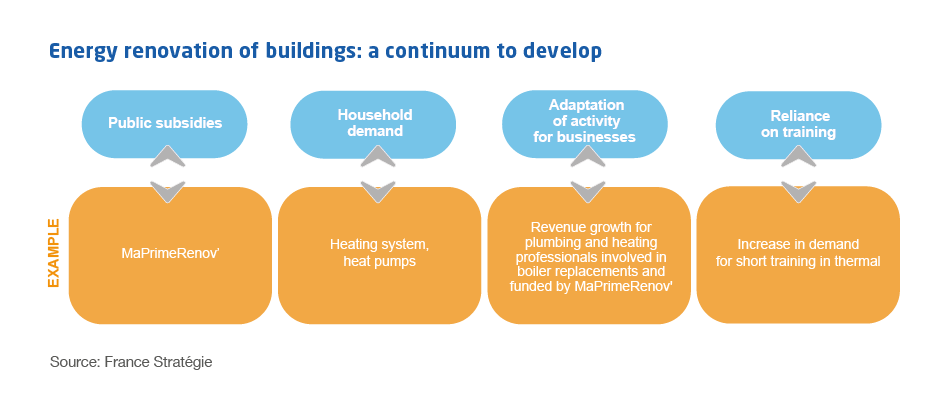
Strongly supported by public subsidies, the demand from households determines the labour needs of companies. Consequently, redirecting these public subsidies toward efficient renovation requires better targeting and enhanced quality control of the work. Once these conditions met, it is also essential to ensure that the training system is prepared to meet this demand. However, there still to undertake many actions making building occupations more attractive and developing continuing education. Currently, the workers trained in efficient and comprehensive energy renovation, as well as the companies providing guarantees of work quality are not enough.
Therefore, we identify key measures to address the volume of available workers and the quality of energy renovations: increasing the number of workers available to carry out these type of tasks; increasing the number of young people trained - especially in execution-related occupations - and adjusting the training offer to the differentiated needs of regions; strengthening the provision of continuing education for emerging occupation ; adapting professional standards and certification to the specific skills required for efficient energy renovation.

[1] See Jolly C., Robinet A. et Cousin C. (2023), « Energy-efficient renovation of buildings: what workforce requirements will be needed for 2030?», La Note d'analyse, n°126, France Stratégie / Dares, septembre. This analysis note is published jointly with this note.
Read the full document in french








